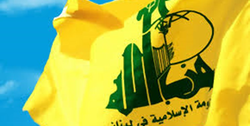 An American author and Middle East expert tells Press TV’s The Debate that Hezbollah’s recent response to Israel’s aggression signals limitation in the apparent impunity, with which the regime would attack others expecting little to no retaliation.
An American author and Middle East expert tells Press TV’s The Debate that Hezbollah’s recent response to Israel’s aggression signals limitation in the apparent impunity, with which the regime would attack others expecting little to no retaliation. RNA - On Sunday, Hezbollah struck an Israeli military vehicle, reporting casualties, including possible death of a general heading Israel’s Northern Command.
Hezbollah Secretary General Sayyed Hassan Nasrallah had earlier said his group would increase its defensive measures in the face of Israeli incursions after Israel killed two Hezbollah members fighting terrorists in Syria and crashed a drone into Hezbollah’s media office in Beirut.
Tel Aviv launched wholesale wars against the country in 2000 and 2006. Hundreds of Lebanese were killed during the military operations, but the regime was eventually forced to retreat in both cases after being surprised by Hezbollah’s defensive maneuverability.
Barrett also said the fashion of Hezbollah’s response showed that the movement takes care not to hit civilian targets as opposed to Israelis, who “intentionally target civilians.”
“Hezbollah is an anti-terror organization standing against Israeli terrorism,” he noted.
Naseer al-Omari, writer and political commentator, who was also addressing the program from New York said Israel had become wary that Hezbollah was now in possession of much more advanced weaponry.
He said those arms included “high-precision missiles that can travel up to 60 miles (96 kilometers).” Barrett acknowledged by saying that the group was in a far better shape now than it used to.
“I am sure this is a serious threat to Israel,” Omari noted.
847/940